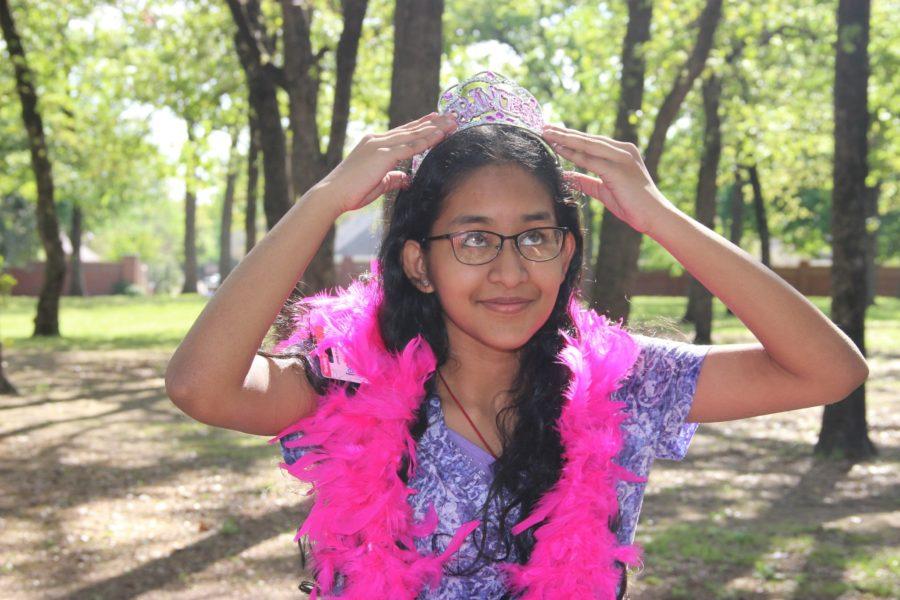Call me princess: Why I am an only child and absolutely love it
Staff writer Akila Muthukumar satirizes the experience of being an only child. She exaggerates characteristics such as being spoiled, being the center of attention, and lacking social skills, but eventually rationalizes the truth of being an only child: there are positive and negative aspects and she never lacks love from those she has in life.
Like not using the right fork when at dinner in a fancy restaurant or wearing mismatched neon clothes, being an only child can get a bad rap.
Only children are often characterized as selfish, socially awkward hermits, waiting on the desolate island of self-centeredness amongst their imaginary admirers for any human contact.
Then, of course, there are the impassioned (albeit misguided) attempts to defend the only child; they must have grown up with refined thought from years of introspection and dinner table talk that revolved around adult matters, a precocious gem. They will always embrace time alone and find creative ways to entertain themselves, unlike their weaker counterparts: those with siblings.
An abridged life story
- Early years
When I was born, my parents threw out the rest of their life – work, friends and other relatives – aside to obsess over me. Their undivided attention had an unintended consequence; it increased dependency on them for every little thing. In fact, as of today, I still cannot tie my shoes without their help.
Additionally, from my years as a toddler, I was embroiled in heated discussions on politics, and the world water crisis. I believe my first words were, in fact, “sociopolitical.”
But, I must say the greatest advantage I have had from an early age is being able to point at anything, ranging from a Mercedes Benz to my own apartment (which I used to hold seminars on foreign affairs), and get it immediately. All the presents under the Christmas tree were mine and my birthday was treated like a religious holiday.
- Middle years
When my parents decided it was time to return to work, I was left in complete isolation.
I did not interact with friends, relatives, neighbors or have any general human contact. This is when I started dreaming up imaginary friends, perhaps the hallmark that only children are notorious for. I surrounded myself with these companions, hosting events ranging from elaborate dinner parties and casual birthday celebrations, except the presents bought were always mine.
I bossed these imaginary pals around to fulfill my every whim: they carried my throne, cleaned my tiara until it was shining and answered to my every demand.
Then, when I finally first met another human (around age 14), I immediately lunged for their hair and jumped around shouting gibberish, unsure how to express the many terrible years of loneliness.
- Present day
Despite the exaggerations in the tall tales I have presented thus far, the truth is: I’m still figuring it out. As a teenager, the effects of being an only child are significantly less distinguishable and slowly wearing off. As I start learning to drive, approaching college and a life away from home, I am forced into more social interactions.
I will never quite understand the world of sibling rivalries, trying to follow in the footsteps of an older sibling or trying to leave those same footsteps for a younger one and the special relationship that a brother/sister must bring into one’s life.
But, being an only child has enriched my life in countless other ways: I have grown closer than I ever imagined to my parents, have made friends who are practically siblings, learned to embrace quiet time alone and honestly never felt a lack of love from those I do have in my life.
Follow: akilam 29

Akila Muthukumar is a sophomore who loves writing, dancing and learning new things. You can contact her at avm7442@g.coppellisd.com.












Riley • Apr 27, 2017 at 12:24 pm
Loved reading your story!! It’s so funny!
Meha Srivastav • Apr 3, 2017 at 11:09 am
This is such a great and funny story, Akila!
Fiona Koshy • Apr 1, 2017 at 4:24 pm
Love this story Akila, really cool approach!